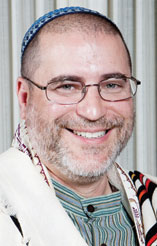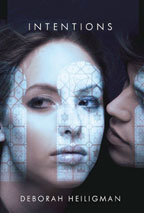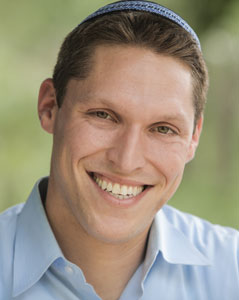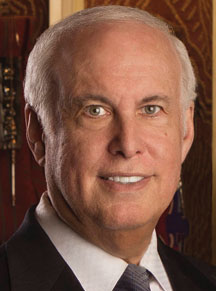 “Be a mensch Morgan,” they say. My dad, my mom, my grandma. They all want me to be a mensch. What’s a mensch? It’s the nicest, the most open-minded, the most caring a person could be. It’s a Yiddish term that was brought over to the United States by Jewish people in the late 19th and early 20th century.
“Be a mensch Morgan,” they say. My dad, my mom, my grandma. They all want me to be a mensch. What’s a mensch? It’s the nicest, the most open-minded, the most caring a person could be. It’s a Yiddish term that was brought over to the United States by Jewish people in the late 19th and early 20th century.
So how do I “be a mensch?” It’s something I’ve always struggled with. Am I a mensch? How can I become one?
Everyday, I get thrown into situations where I may not display the qualities of a mensch. A big struggle of mine centers around my religion and how others around me react to it. It’s true, it’d probably be easier to go to church on Sundays or celebrate Christmas in December. It would be easier to acknowledge Easter in the spring instead of Passover. It would be easier to make a Christmas ham instead of matzah ball soup. But my family is Jewish, so explaining to others about my religion isn’t always that easy.
And when I think about all the struggles that my people have gone through before me, in theory, telling someone that I’m Jewish in 2012 shouldn’t be that hard.
But it is. Whenever I tell people about my faith, I am often struck with how high a level of ignorance others have. To some it’s almost as if they don’t even see me. They see my face, my hair color, my nose, and suddenly they are confused. I don’t add up in their minds.
“Really? You don’t look Jewish.”
I hear it all the time. At first I feel surprised, embarrassed, even ashamed. What’s that supposed to mean? What do you mean I don’t look Jewish? It’s a religion. Not a race. It’s my religion.
And yet, I say nothing. And my thoughts pound me. Five thousand years of scapegoating, persecution, bullies, and I can’t even stand up for myself. And I can’t tell them it’s wrong. I can’t stand up and be a real mensch. I can’t even act brave when someone is questioning or insulting the very values that make up my core.
So now I want to say what I haven’t been able to say before. I’m proud. I’m proud of my culture, my religion and of myself.
My religion doesn’t define me, I define my religion.
But I know the generalizations. I’m supposed to have curly dark brown hair, dark eyes, pale skin, a big nose and a small pale frame. I have blonde hair and an average-sized nose. I’m also a practicing Jewish American. The latter generalizations are so 1942 and World War II. They are the untrue, sweeping statements that brutally murdered 6 million of my people.
Every time I hear an ignorant stereotype my feelings are hurt. I hate that people think I need to fall into a certain category. The Nigerian writer Chinua Achebe best explains why the human race has a knack for generalizing. He says, “The whole idea of a stereotype is to simplify. Instead of going through the problem of all this great diversity — that it’s this or maybe that — you have just one large statement; it is this.” In other words, humans are uncomfortable with our differences so we try to box people up. To make ourselves more comfortable. To generalize instead of acknowledge reality. It’s obvious that creating a barrier isn’t right, but sometimes it’s easier than getting to know someone who is different. It’s very easy. So easy that I’m guilty of it too.
During the fall, my family joins Jews all over the world in celebration of the Jewish New Year, Rosh Hashanah. My favorite part of Rosh Hashanah is that instead of looking ahead to the next year, we reflect on the prior year. We don’t have a countdown at midnight, or make resolution lists, or pop champagne bottles when the clock strikes 12. There aren’t any extravagant late-night parties, or confetti and balloons. Rosh Hashanah is about finding your true self, and getting back down to your core values. I get to spend time with my extended family and it gives me a really good chance to just slow down and evaluate myself.
This year, during my reflection I decided to examine how I see others. I looked at the judgments I make based on race, religion and appearance. I want to change because I want to be a mensch, but also, because I know how it feels. How it feels to be the brunt of a disrespectful joke, or be questioned for my beliefs. And I have a hunch I’m not the only one who knows how it feels. There must be millions of people out there who are left out or discounted for how they dress, how they talk, the color of their skin, the person they love, the party they vote for, the country they’re from, the country they live in, or even just the way they go about living their daily lives.
But still we are quick to judge or quick to criticize even when we can understand the pain it causes. I can assure you, taking the time to get to know someone else, learning about another culture or just slowing down to appreciate someone or something that differs from your personal lifestyle will be worth it.
I think that we as citizens of the world have to remember that we aren’t here to box up, and scrutinize others. We’re here to love one another. We’re here to capitalize on our differences and celebrate them.
Now, don’t start categorizing me as being a person who likes to make big smart quotations all the time. Trust me, I’m not that pretentious. But the quote from sociologist Charles Horton Cooley perfectly illustrates an ideal way to look at the world; “Our individual lives cannot, generally, be works of art unless the social order is also.” He means that we ourselves can’t be beautiful and appreciated, if our world doesn’t want to perceive us as so. To gain a certain level of respect we must also give that same level of respect to others.
This year, I hope you can join me in my fight against stereotypes, generalizations and barriers. Join me as I hope to open my mind and be more tolerant of others and their own practices. Join me in celebrating the variety and differences that make our world a beautiful place to live. Join me in becoming a true mensch.
“Alone we can do so little; together we can do so much.” — Helen Keller
This article was originally published in the Shawnee Mission East Harbinger, the school’s student newspaper. Morgan Krakow is a sophomore at SME and co-editor of the opinion page. She is the daughter of Andrea and Jason Krakow, the granddaughter of Marlene Krakow, Larry and Susan Krakow and Vicki Johnson and a member of Congregation Beth Shalom.



 I originally wrote the article below in January 2009 in response to the events surrounding Operation Cast Lead. Beginning in November 2008 Israel was faced with a barrage of hundreds of rockets and mortars fired from Gaza. After a month of attacks with devastating impact on Israelis living in the south, Israel responded with Operation Cast Lead including air and ground initiatives. This article was written in response to heated debate about Israel’s response. With more than 140 rockets fired from Gaza into Israel last weekend — and Israeli counterattacks — I sadly felt the need to re-post this article.
I originally wrote the article below in January 2009 in response to the events surrounding Operation Cast Lead. Beginning in November 2008 Israel was faced with a barrage of hundreds of rockets and mortars fired from Gaza. After a month of attacks with devastating impact on Israelis living in the south, Israel responded with Operation Cast Lead including air and ground initiatives. This article was written in response to heated debate about Israel’s response. With more than 140 rockets fired from Gaza into Israel last weekend — and Israeli counterattacks — I sadly felt the need to re-post this article. The teenage years are difficult in general. However, life is infinitely more challenging when your parents begin fighting all the time; your beloved grandmother is failing both physically and mentally; your best friend Alexis has become a cruel bully; your not-quite-boyfriend Jake is distant; and worst of all you overhear the rabbi whom you love and respect having sex on the bimah. During her 15th year, these are the issues that confront Rachel Greenberg in “Intentions.”
The teenage years are difficult in general. However, life is infinitely more challenging when your parents begin fighting all the time; your beloved grandmother is failing both physically and mentally; your best friend Alexis has become a cruel bully; your not-quite-boyfriend Jake is distant; and worst of all you overhear the rabbi whom you love and respect having sex on the bimah. During her 15th year, these are the issues that confront Rachel Greenberg in “Intentions.” “Be a mensch Morgan,” they say. My dad, my mom, my grandma. They all want me to be a mensch. What’s a mensch? It’s the nicest, the most open-minded, the most caring a person could be. It’s a Yiddish term that was brought over to the United States by Jewish people in the late 19th and early 20th century.
“Be a mensch Morgan,” they say. My dad, my mom, my grandma. They all want me to be a mensch. What’s a mensch? It’s the nicest, the most open-minded, the most caring a person could be. It’s a Yiddish term that was brought over to the United States by Jewish people in the late 19th and early 20th century. As we are reflecting during this domestic abuse awareness month, we can think about all types of victims and invisible people in our society today.
As we are reflecting during this domestic abuse awareness month, we can think about all types of victims and invisible people in our society today. QUESTION: I am a member of a local Orthodox congregation here in Kansas City. My son is marrying a modern Orthodox girl in a large East Coast city. The wedding will take place in a Spanish Portuguese synagogue of which her family has been a member for generations. My son has been told by the rabbi that it is not their tradition for the bride to walk around the groom. Furthermore, my son was told he cannot wear a kittel or the white gown that many Orthodox grooms wear when they are married. Are not these laws in Judaism or are they just tradition?
QUESTION: I am a member of a local Orthodox congregation here in Kansas City. My son is marrying a modern Orthodox girl in a large East Coast city. The wedding will take place in a Spanish Portuguese synagogue of which her family has been a member for generations. My son has been told by the rabbi that it is not their tradition for the bride to walk around the groom. Furthermore, my son was told he cannot wear a kittel or the white gown that many Orthodox grooms wear when they are married. Are not these laws in Judaism or are they just tradition?